The rise and fall of David's Bridal: The bridal-dress destination is looking for a comeback after its second bankruptcy
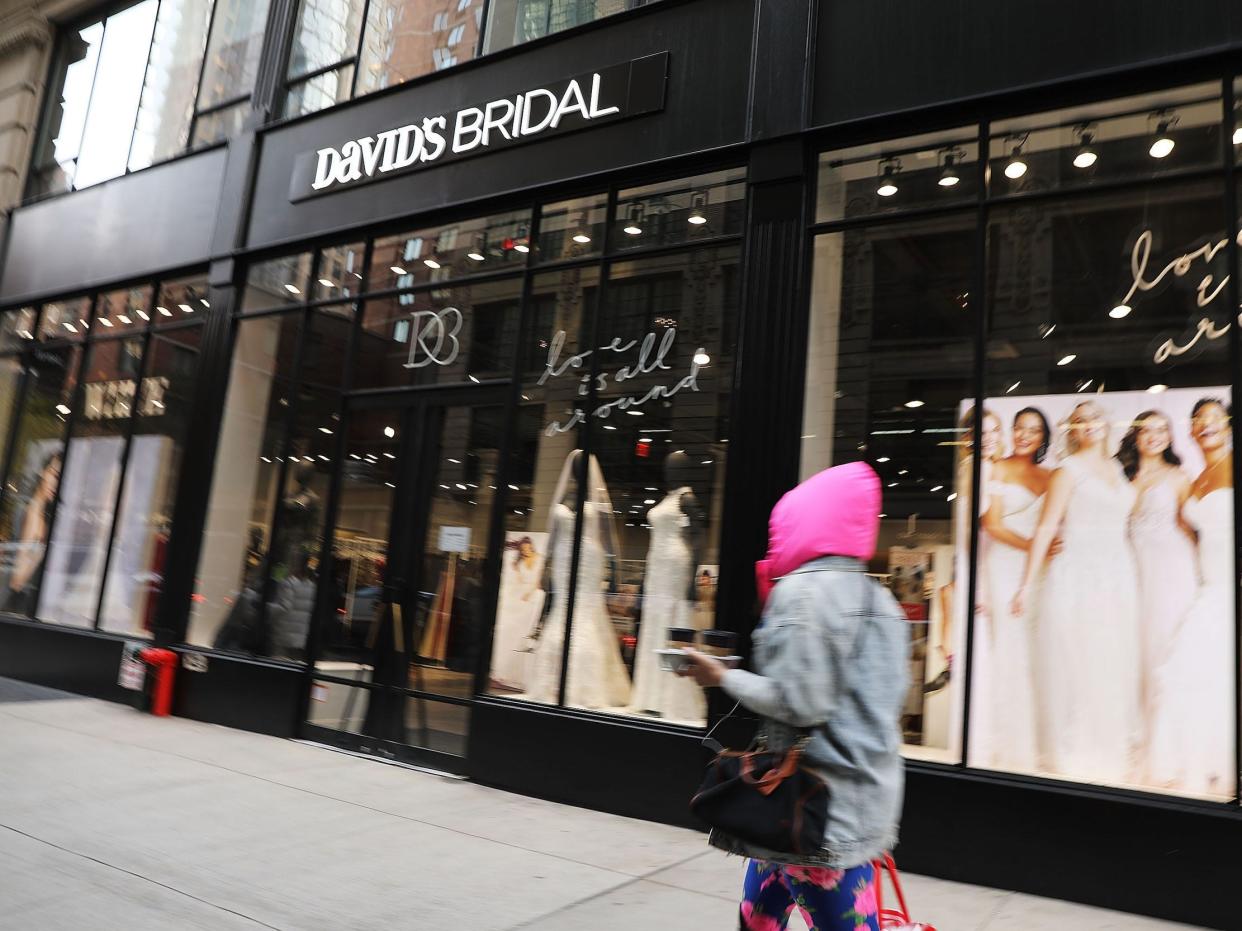
David's Bridal filed for bankruptcy in April and was sold in July to Cion Investment Corp.
David's Bridal got its start as a single boutique in Florida and grew to be the largest bridal retailer in the US.
Here's how the company evolved since its founding in 1950, before struggling amid a changing bridal industry.
David's Bridal was founded by David Reisberg in 1950 as a single bridal shop in Fort Lauderdale, Florida
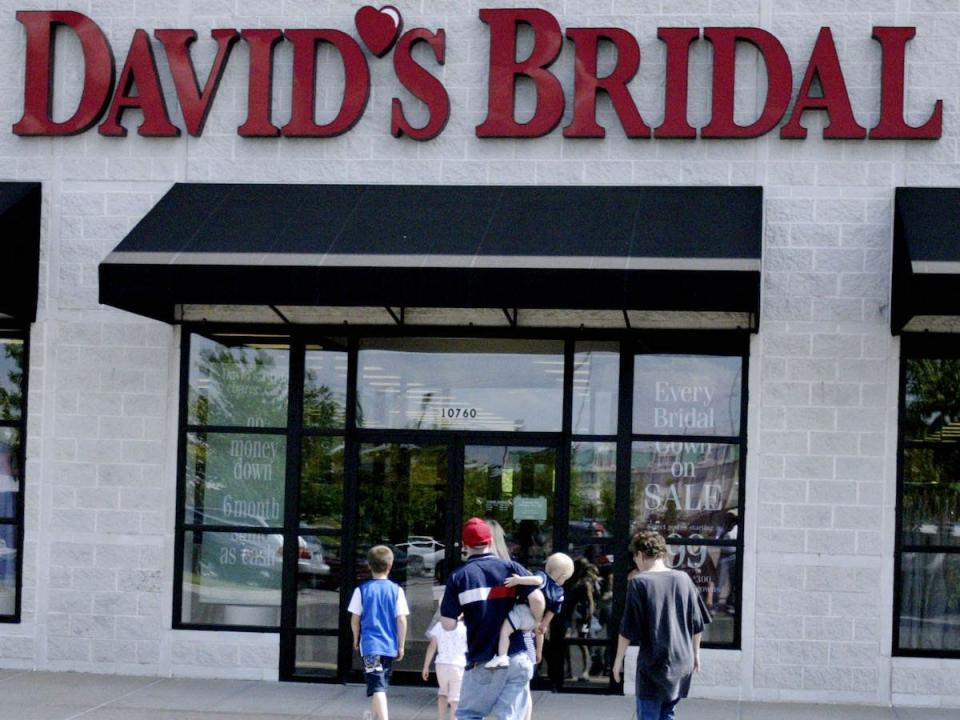
The company was later purchased and expanded under new owners, Philip Youtie and Steven Erlbaum.
Source: AP, Philadelphia Business Journal
In its early years, David's Bridal operated both boutiques and wedding dress warehouses where a bride could get a designer-like wedding dress on the cheap
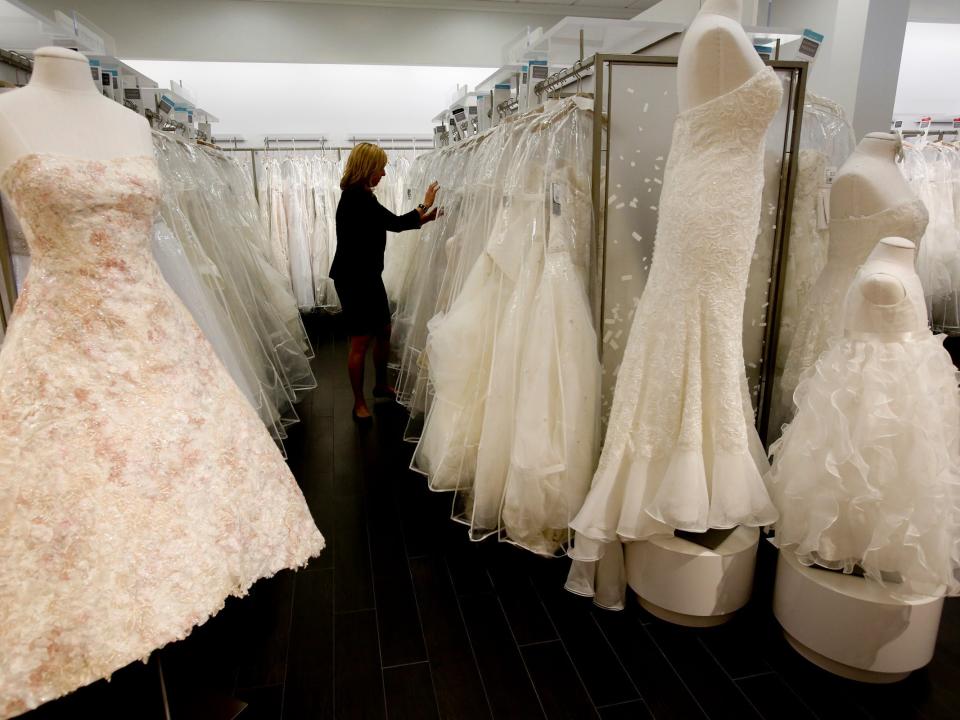
"We get people who are getting married in two weeks and just don't have the time for all of that," Youtie told the South Florida Sun Sentinel in 1991.
Source: South Florida Sun Sentinel
The formula worked. The company filed for an initial public offering in 1999.
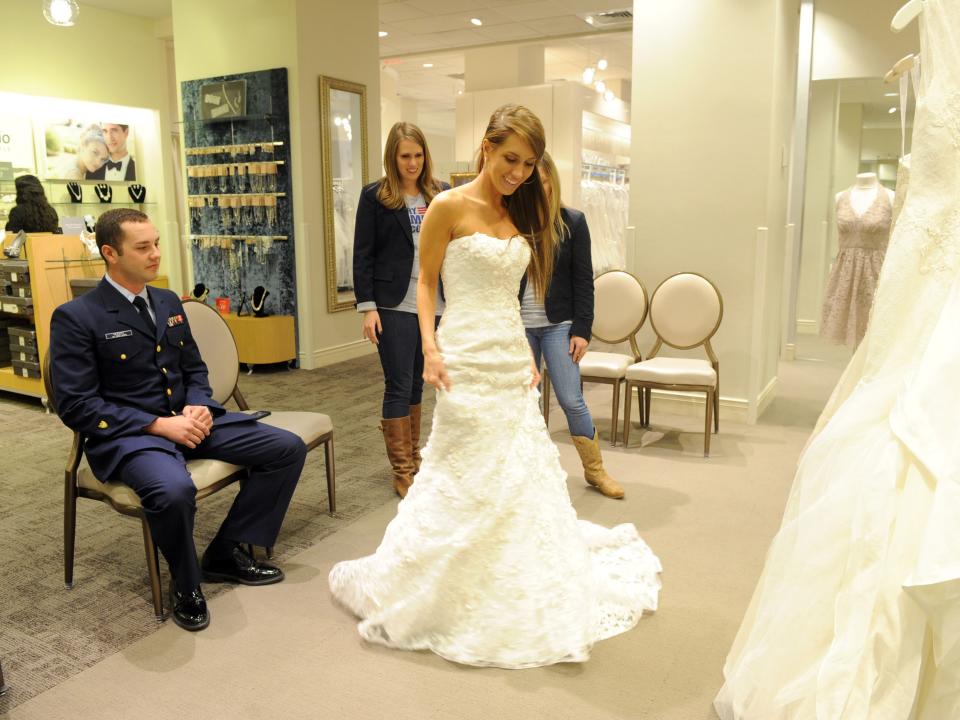
By 1999, David's Bridal employed 1,445 people, operated 80 stores in 30 states, and had reported more than $132 million in sales.
Source: Philadelphia Business Journal
By 2000, David's Bridal was the nation's largest bridal retailer and had caught the attention of May Department Stores, then the parent company of Lord & Taylor
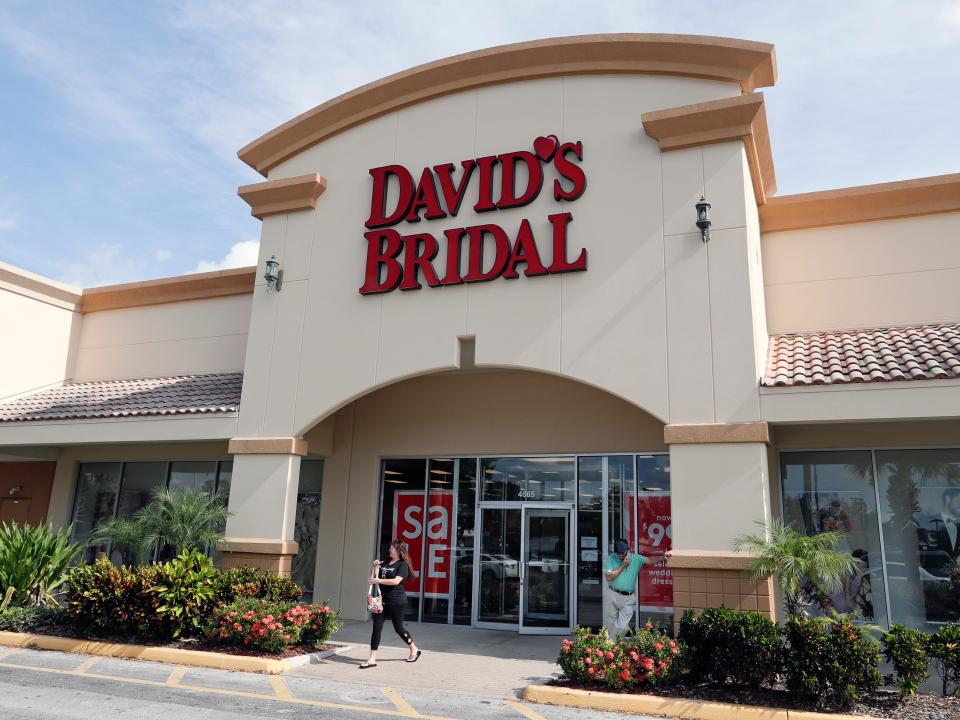
May bought David's Bridal for $436 million as part of a bid to expand its bridal registry business.
Source: The Wall Street Journal
May later merged with Federated Department Stores — or, as we know it today, Macy's
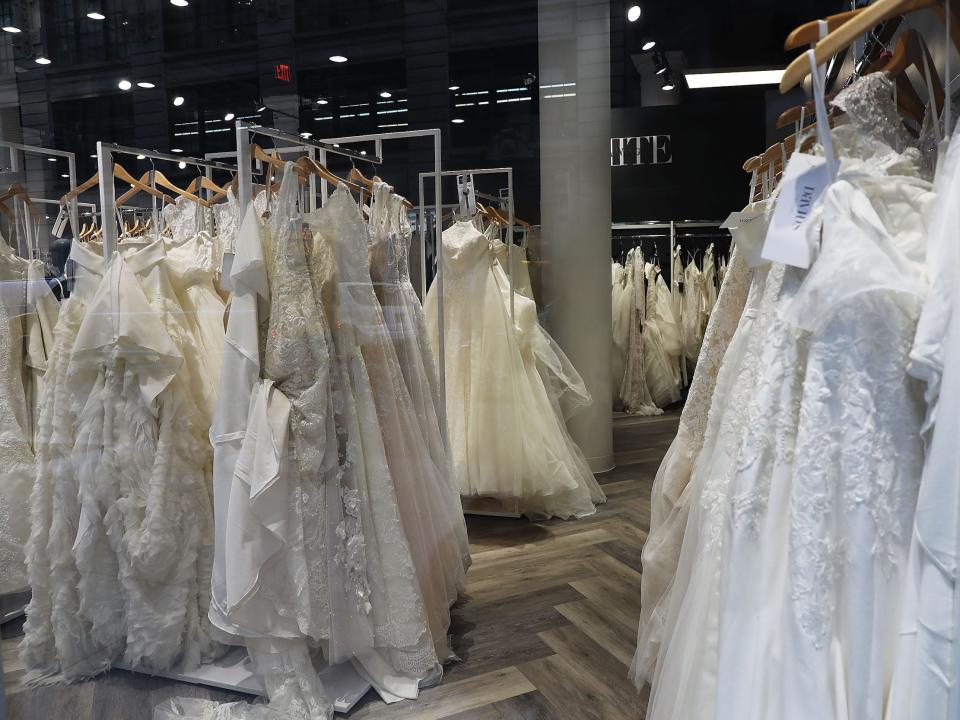
In order to offload some of its debt, Federated put David's Bridal up for sale, and in 2006, investment firm Leonard Green & Partners bought it for $750 million.
Source: Los Angeles Times
But the sale came at a time when the bridal industry was beginning to change
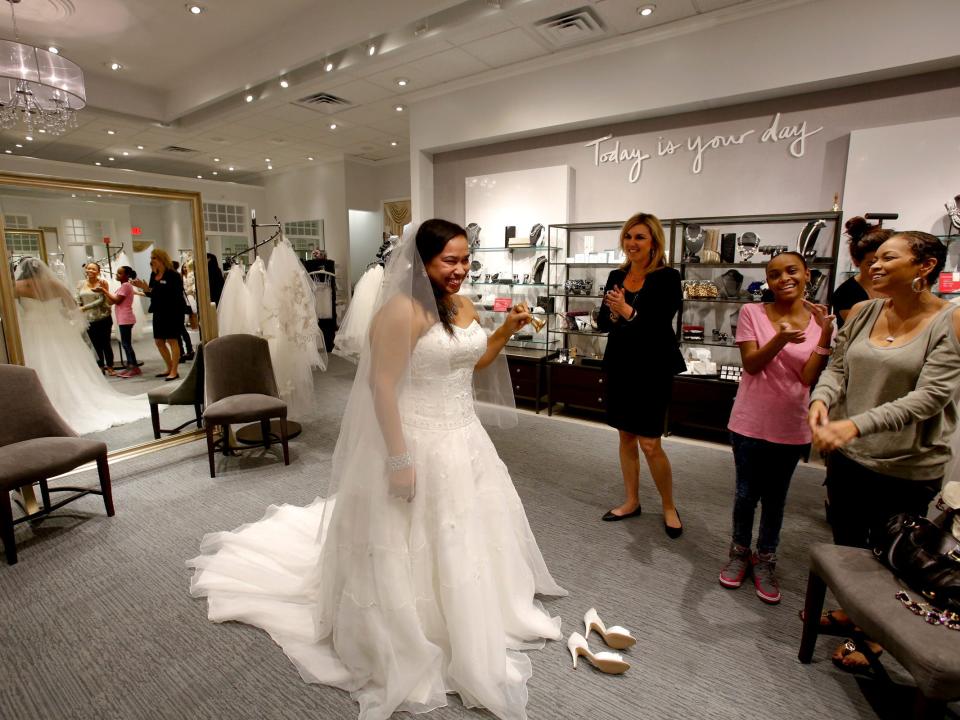
While David's Bridal offered some pricier gowns, it was known primarily for affordable wedding dresses, and the lower end of the bridal market had become saturated. Plus, high-end designers had started to launch their own couture bridal lines and brides were starting to spend thousands of dollars on their dream dress.
Source: Los Angeles Times
So David's Bridal started chasing after higher-end brides
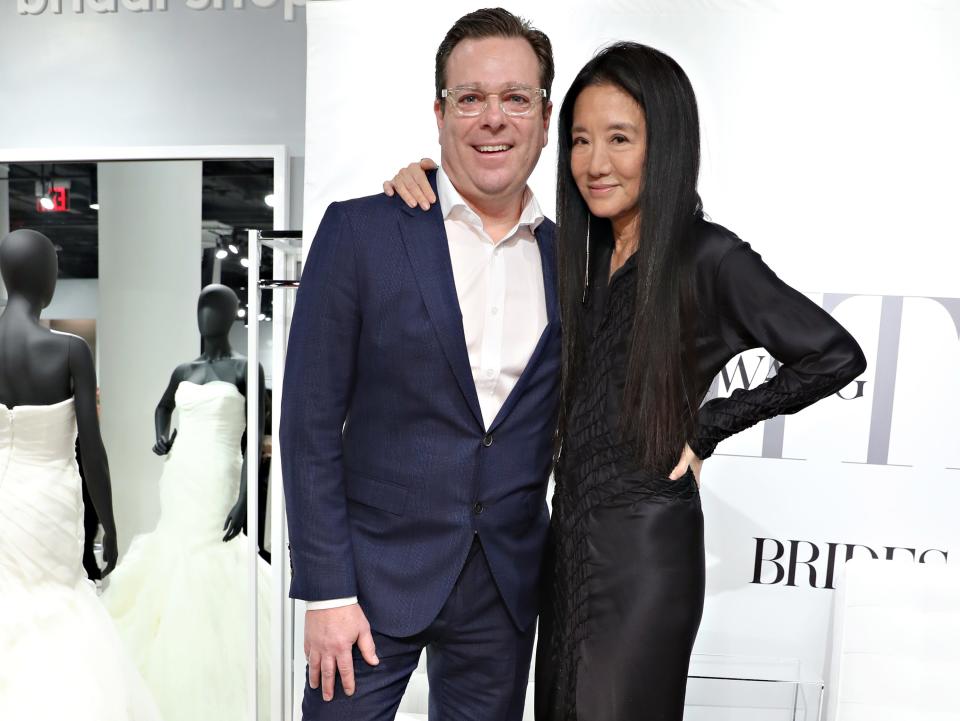
In 2010, famed bridal designer Vera Wang announced that she would design a collection of stylish but affordable gowns for David's Bridal. Prices started around $600 — by comparison, a typical Vera Wang wedding gown started around $4,000 at the time.
Source: The Cut
In 2012, David's Bridal sold again, this time to private equity firm Clayton, Dubilier & Rice
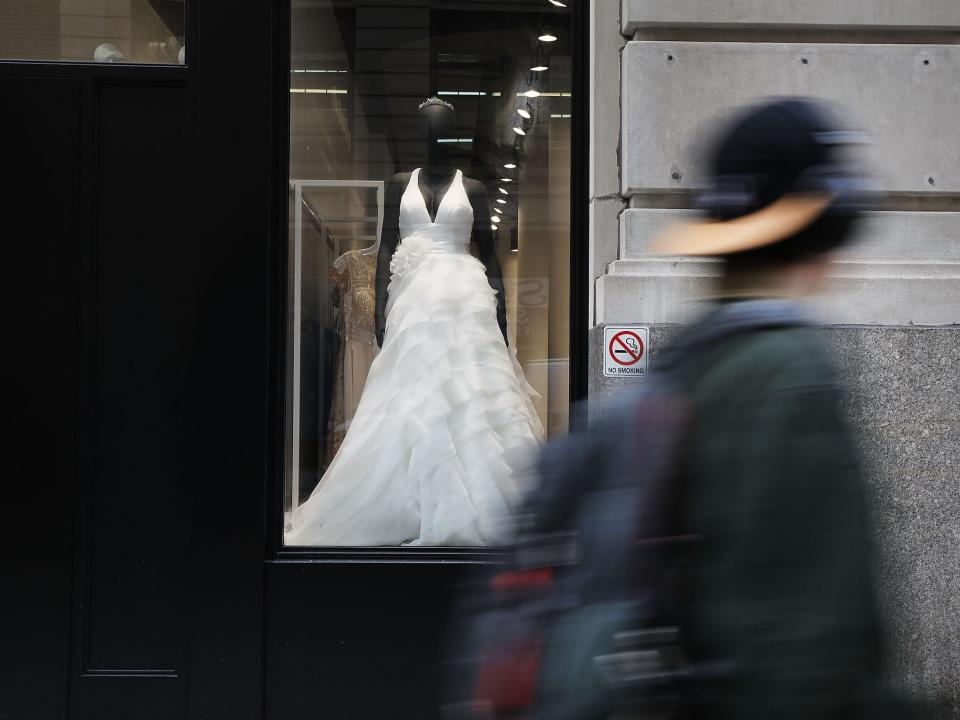
The leveraged buyout valued the retailer at $1.05 billion, but saddled it with debt at a time when the wedding industry was changing rapidly.
Source: The New York Times
Marriage rates were on the decline at the same time that gown shopping continued to evolve
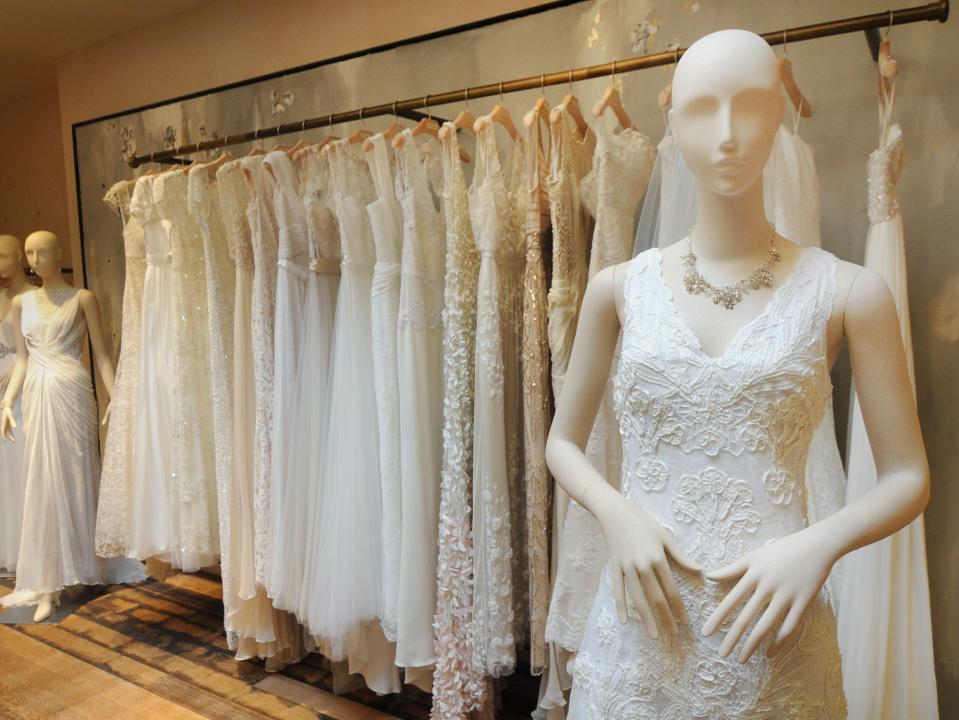
Many brides were spending more than ever on their gowns — $1,564 on average by 2016 — or were opting to shop online at sites like ASOS, Reformation, and Anthropologie's BHLDN line.
Source: The New York Times, Insider
Plus, whether accurate or not, David's Bridal had the reputation of "the Walmart of weddings," as Racked put it at the time

The 2010s bride was planning her wedding with the help of Pinterest and Instagram, which encouraged a more customized experience — one that didn't necessarily involve a cookie-cutter dress and a dozen matching bridesmaids dresses.
Source: Racked, Washington Post, Insider
In 2018, David's Bridal filed for bankruptcy in an effort to offload some of its more than $400 million in debt and revamp the company in the face of those new competitors
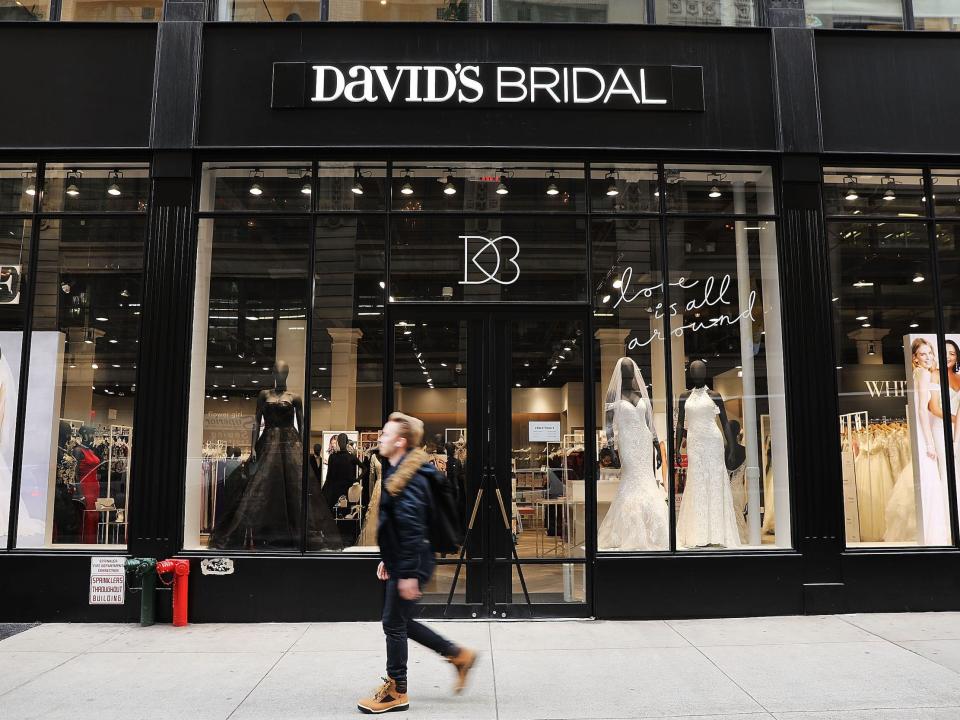
Source: The New York Times
But it emerged less than two months later with a significantly reduced debt load and new ownership — a group of lenders including Oaktree Capital Management
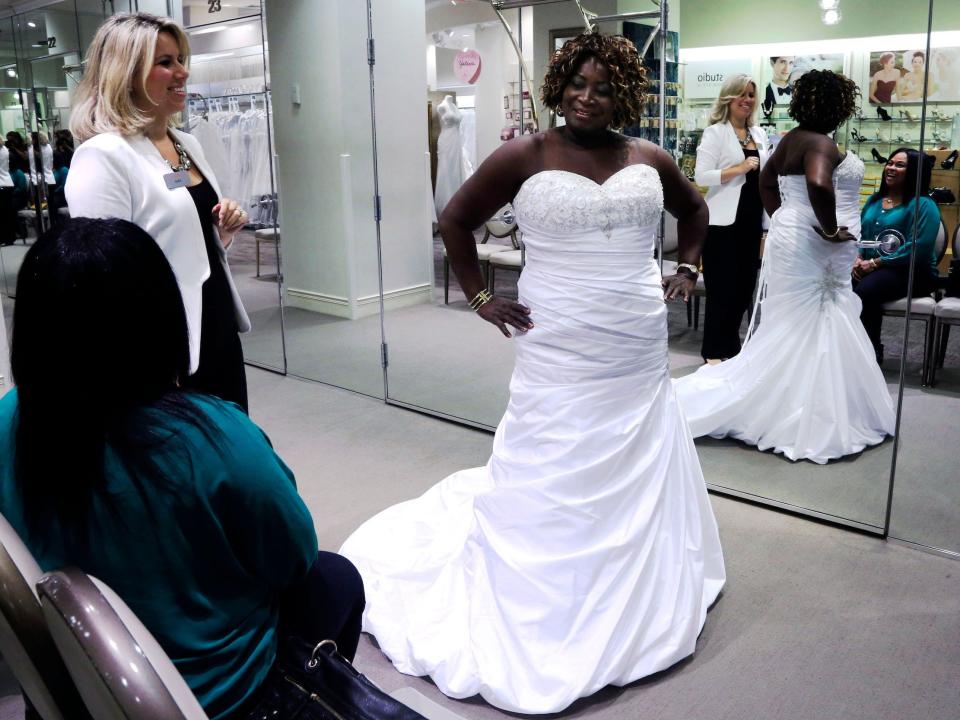
Source: Los Angeles Times
Like other retailers, David's Bridal was impacted by the pandemic, which not only significantly curtailed weddings and other events like quinceañeras and proms, but also disrupted supply chains

David's Bridal was forced to move production amid overseas Covid lockdowns and use air freight to transport gowns when shipping lanes became clogged.
The company committed to delivering on every order, CEO Jim Marcum told Insider in 2023. "We had dresses where we would put that unit back into production in a factory and 48 hours later had it on the belly of an airplane flying it into the customer," he said.
Source: The New York Times
Despite a projected 2022 wedding boom, David's Bridal saw a decline in demand and filed for bankruptcy for a second time
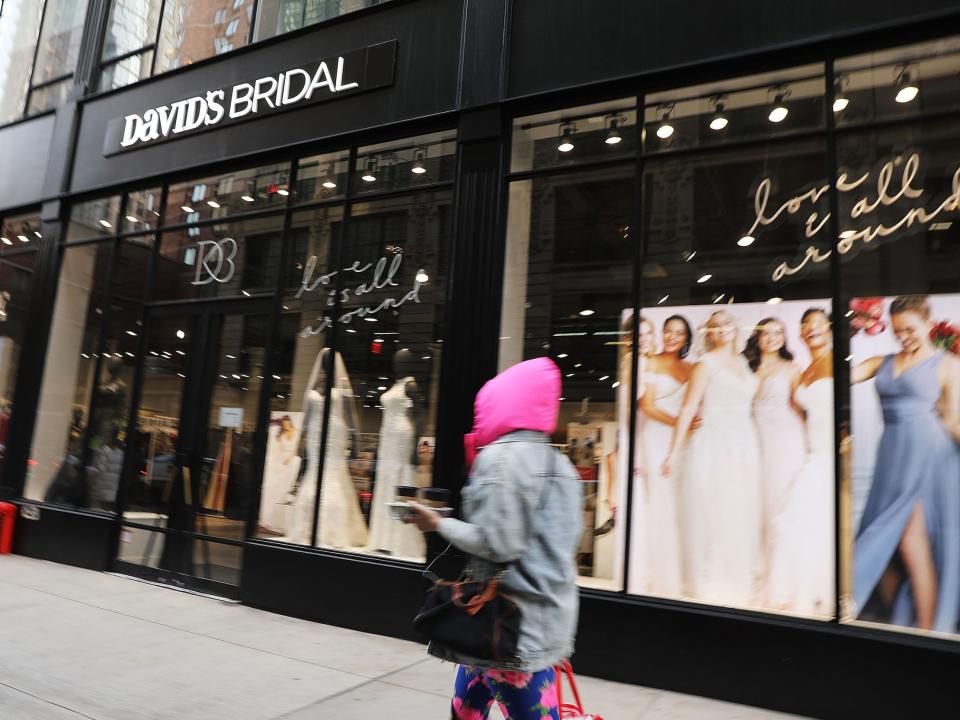
Although a 2021 WeddingWire report projected 2022 would be a big year for weddings, some businesses actually found the opposite.
"It wasn't a boom year for anybody in the industry," Marcum told Insider. "We had a phenomenal 2021. We were the only ones that had the inventory when all of a sudden they wanted to get married in the backyard. But what happened is that we got to the first quarter of 2022 and right after that, 2022 was soft."
In April, David's Bridal filed a WARN notice that it could lay off more than 9,000 employees nationwide and, shortly after, filed for bankruptcy a second time. The company said it would still fulfill customers' orders as it looked to sell the company.
Source: Insider, The New York Times, The Wall Street Journal, Insider
In July, a bankruptcy judge approved the company's sale to Cion Investment Corp.
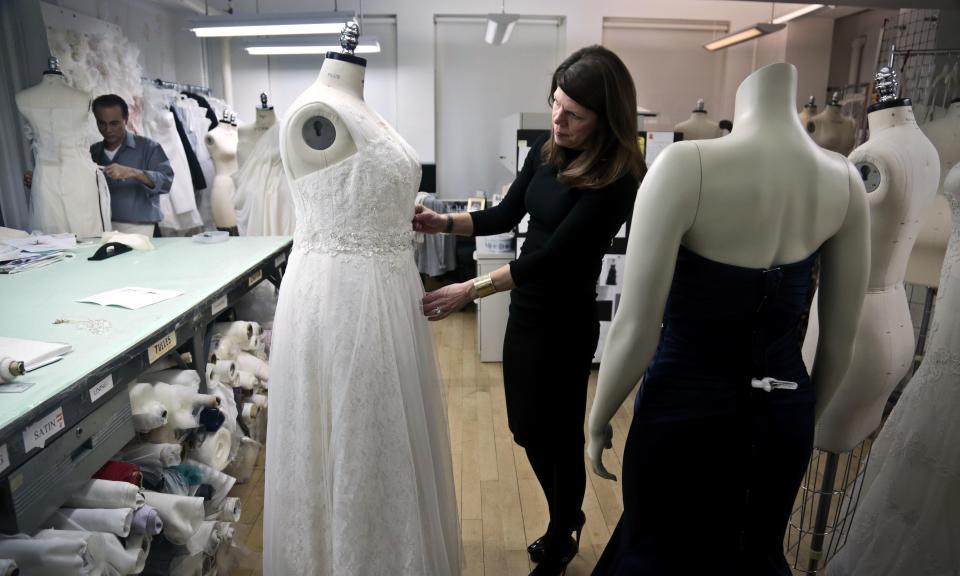
The sale was expected to keep about two-thirds of the chain's stores open. Marcum told Insider that the chain closed 100 stores, which represented about 7% of the company's store profitability.
Cion's takeover is expected to keep 195 stores open. David's Bridal didn't receive any cash from the deal, but Cion would pay part of the company's debt, Reuters reported.
In January 2023, the company launched a wedding-planning platform and vendor marketplace, called Pearl by David's
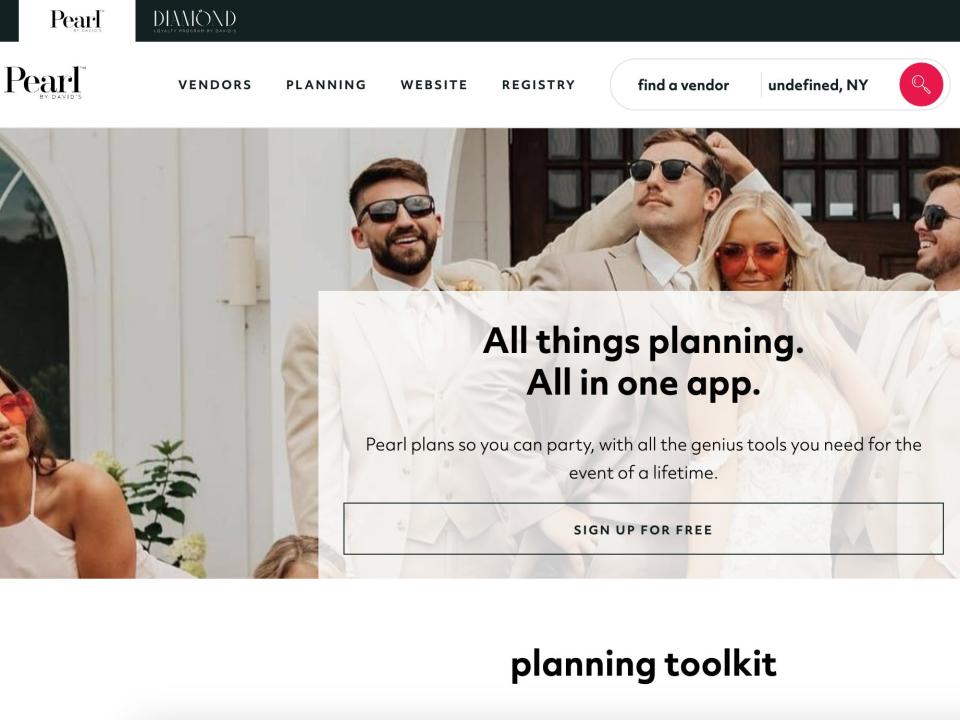
The platform offers couples a one-stop for their planning needs with checklists, vision boards, registries, and a vendor marketplace.
Marcum told Insider that Pearl is different from other planning sites like The Knot and WeddingWire. "The Knot's value prop is the vendors," he said. "So when we designed Pearl, we took a really hard look at the economics of what we would charge a vendor to list. The majority of it is free. To us, it was about the ecosystem to offer the bride something that's of value."
Source: Insider
CEO Jim Marcum said the company is positioned to target mass America

"I don't think we could be better positioned than any retailer in this country for the segment we're in," Marcum told Insider. "If you really look at our dresses, you can't get the value, price proposition, or quality anywhere at our price points."
Source: Insider
Marcum is optimistic about the company's future
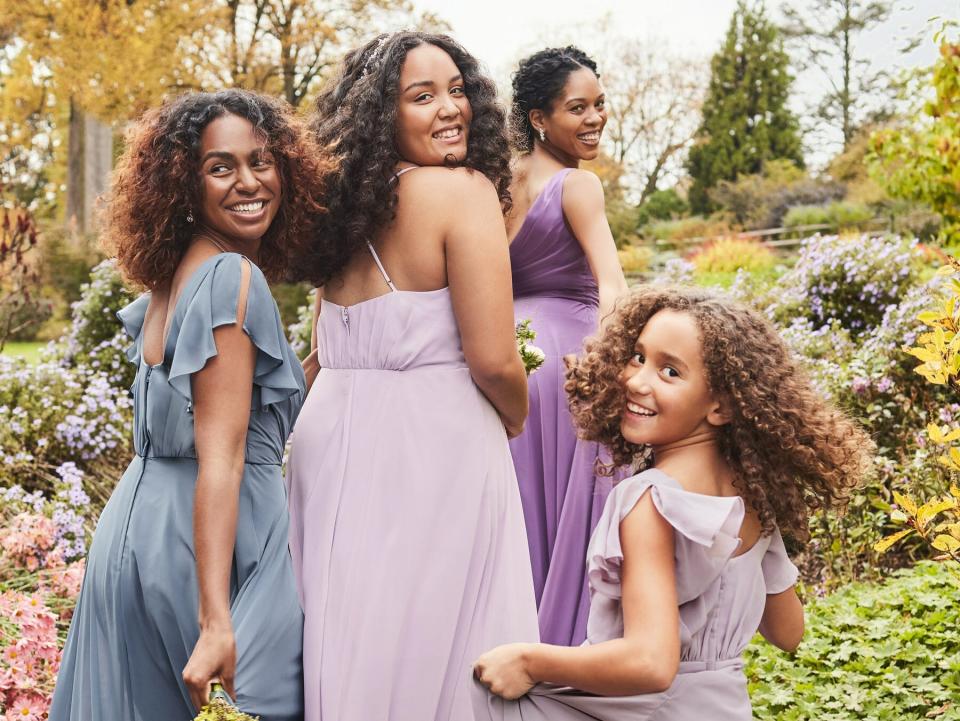
Signet Jewelers, a bellwether for the wedding industry, projected that engagement sales will need to grow 25% by 2026 to return to pre-pandemic levels.
"It takes about three years in the dating cycle to get to the engagement," Marcum told Insider. "They put out projections for the fourth quarter of 2023 — they think it's going to be robust and picking back up. And they've put out data projections for 2024. If those projections are halfway true, we feel very good."
Read the original article on Business Insider


